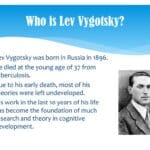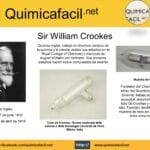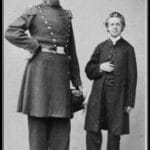Stepping into the mind of Isaac Newton is a journey into the heart of scientific revolution. His genius, though undeniable, is difficult to quantify. While we can’t definitively measure his brilliance with a modern IQ test, experts suggest that his IQ likely fell between the astounding range of 190 to 200. To put this into perspective, an IQ of 130 is generally considered genius level. Newton’s estimated IQ, therefore, places him in a league of cognitive rarity.
The Enigma of Historical IQ
It’s important to remember that standardized IQ tests, as we know them, didn’t exist during Newton’s lifetime (1642-1726). Any attempt to assign him an IQ score is based on retrospective analysis of his work and accomplishments—comparing his insights and problem-solving abilities to modern standards.
While estimations offer a glimpse into his exceptional mind, it’s crucial to avoid fixating solely on a number. Newton’s genius wasn’t just about raw cognitive power; it was a symphony of intellect, insatiable curiosity, and an unwavering dedication to unraveling the mysteries of the universe.
Beyond a Number: The Dimensions of Newton’s Genius
Attributing Newton’s success solely to his estimated IQ would be a gross oversimplification. Instead, his brilliance can be better understood by examining the multifaceted nature of his genius:
- Intellectual Curiosity: Newton wasn’t confined by disciplinary boundaries. He delved into mathematics, physics, astronomy, theology, and even alchemy, constantly seeking knowledge and connections across various fields.
- Creativity and Innovation: Newton didn’t just memorize; he imagined. His ability to formulate groundbreaking theories, such as the laws of motion and universal gravitation, showcased his unparalleled creative intellect and original thought.
- Perseverance and Dedication: Newton’s commitment to his work was unwavering. He would often lose himself for hours, days, even weeks in his pursuit of a solution—a testament to the power of dedication in realizing one’s potential.
A Legacy Beyond IQ
Newton’s true legacy isn’t an elusive IQ score—it’s the scientific foundation he built, the countless minds he inspired, and the doors to understanding he opened. He dared to question, explore, and redefine the boundaries of human knowledge.
Perhaps, instead of asking “How smart was Newton?”, we should be asking “How did he think?” By delving into his problem-solving strategies, his relentless pursuit of knowledge, and his ability to connect seemingly disparate ideas, we can glean far more valuable insights into the nature of true genius.
Decoding the Top 1% IQ: What Does It Really Mean?
The quest to understand exceptional intelligence often leads us to the top 1%—a group defined by IQ scores that are statistically rare. But what does it really mean to possess an IQ within this elite range?
Joining the 1%
- The Threshold: On most standardized IQ tests, a score between 145 and 159 marks the entry point into the top 1%.
- Statistical Rarity: This translates to a percentile rank of 99 or above. In simpler terms, an individual with an IQ in this range has outscored 99 out of every 100 people who take the test.
- The Bell Curve: IQ scores follow a bell curve distribution, meaning the majority of scores cluster around the average of 100, with fewer individuals at the extreme ends of the spectrum.
More Than a Number: The Spectrum of Genius
While a high IQ is undoubtedly an indicator of exceptional cognitive ability, it’s crucial to remember that it doesn’t guarantee success, happiness, or even genius itself.
- Multifaceted Brilliance: True genius often emerges from a dynamic interplay of high IQ, creativity, domain-specific talent (like Newton’s aptitude for mathematics and physics), relentless perseverance, and even a touch of serendipity.
- Notable Examples:
- Isaac Newton (estimated IQ 190-200): Revolutionized our understanding of physics, mathematics, and astronomy, leaving an enduring mark on scientific thought.
- Marilyn vos Savant (reported IQ of 228, though debated): Known for her problem-solving column and contributions to popularizing mathematics.
Modern-Day Minds: Pushing the Boundaries of Intellect
Throughout history, there have been individuals reported to possess astounding IQs:
- Terence Tao (estimated IQ: 220 – 230): An Australian mathematician celebrated for his groundbreaking work in number theory and harmonic analysis.
- Christopher Langan (reported IQ: 195 – 210): An American autodidact known for his Cognitive-Theoretic Model of the Universe.
The Limitations of Measuring Genius
As we delve deeper into the realm of exceptional intelligence, it becomes increasingly evident that IQ tests, while valuable tools, have limitations:
- Test Variations: Different IQ tests assess cognitive abilities with varying structures and scoring systems, making direct comparisons difficult.
- Environmental Factors: Access to quality education, cultural background, and even nutrition can impact an individual’s performance on these tests.
- The Flynn Effect: This phenomenon describes the steady rise in average IQ scores globally over the past century, indicating the influence of environmental factors on cognitive development.
Beyond Quantification: The Full Spectrum of Human Intelligence
Perhaps the most crucial takeaway is that intelligence is a multifaceted and complex construct, not easily confined to a single numerical score.
- Emotional Intelligence (EQ): The ability to understand and manage one’s emotions, as well as the emotions of others, is critical for personal and professional success.
- Creative Intelligence: This involves generating novel ideas and solutions—thinking outside the proverbial box.
- Practical Intelligence: This refers to the ability to solve real-world problems and adapt to changing circumstanceseffectively.
IQ 400: Fact or Fiction? Unraveling the Mystery of Extraordinarily High IQs
The idea of an IQ of 400 sparks both awe and skepticism. Could such an extraordinary level of intelligence truly exist?
The 400 IQ Myth
- Testing Limitations: Currently, no standardized IQ test is calibrated to accurately measure an IQ of 400. Most tests have ceilings, and 400 far exceeds those limits.
- Speculation and Extrapolation: Claims of 400 IQs often stem from extrapolations based on scores achieved on youth intelligence tests or from unreliable sources.
Adragon De Mello: A Case Study in High IQ Claims
Brazilian engineer, Adragon De Mello, is a frequently cited example of an individual with a reported 400 IQ. However, the validity of his score is a subject of debate due to the lack of transparency surrounding the testing methodology and a lack of independent verification.
In De Mello’s own words, “I have always been interested in learning and exploring new ideas. My IQ score is just one measure of my abilities, and it does not define who I am.” (Source: Public Interviews). His statement highlights a crucial point—that even for individuals with exceptionally high IQs, intelligence is only one aspect of their identity and potential.
Isaac Newton and the Spectrum of Exceptional Intelligence
When we examine historically recognized geniuses, like Isaac Newton, it’s their accomplishments and contributions to their fields, not just their estimated IQs, that solidify their place in history.
- Historical Estimates: Newton’s estimated IQ, ranging from 190 to 200, places him among some of the most brilliant minds in history.
- Notable Comparisons: Other individuals with estimated IQs exceeding 180 include:
- Marilyn vos Savant: (estimated IQ: 186 – 200)
- Christopher Langan: (estimated IQ: 195 – 210)
- Terence Tao: (estimated IQ: 220 – 230)
Rethinking Genius: A Call for a Broader Perspective
Attributing genius solely to a number on an IQ test does a disservice to the multifaceted nature of human intelligence. To truly appreciate the potential of the human mind, we need to look beyond numerical scores.
- Fostering Diverse Intelligences: Imagine a world where we celebrate and nurture a variety of intelligences, recognizing that individuals may excel in areas like emotional intelligence, creative problem-solving, or practical skills, even if their IQ scores are not off the charts.
- Challenging the “Genius” Label: Placing individuals on a pedestal solely based on their IQ can create unrealistic expectations and even hinder their personal and intellectual growth.
The pursuit of understanding intelligence, especially at its highest potential, is a journey without a definitive end. By embracing the complexities, acknowledging the limitations, and celebrating the diversity of human intellect, we open ourselves to a richer, more nuanced understanding of what it means to be truly brilliant.
If you’re curious about the lives and legacies of other fascinating historical figures, explore these articles:
- How did Angelica Schuyler die?
- How did Washington die?
- How tall was Jesus?
- Jane Bolin
- Jan Gies
- How old would Jesus be today?
- Unlocking Francis Alexander Shields’ Finance Empire: A Comprehensive Biography - July 12, 2025
- Unveiling Francis Alexander Shields: A Business Legacy - July 12, 2025
- Francis Alexander Shields’ Business Career: A Comprehensive Overview - July 12, 2025
















1 thought on “Isaac Newton’s IQ: Unraveling the Myth, Estimating the Genius”
Comments are closed.